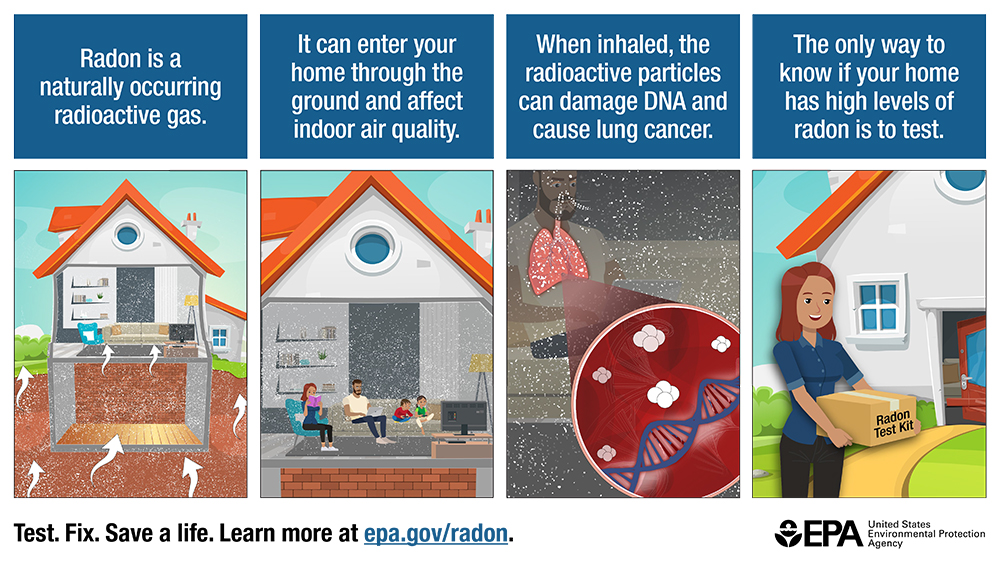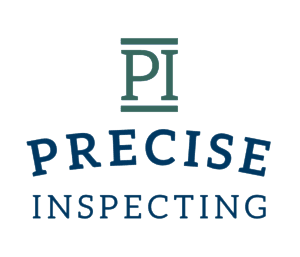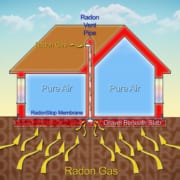Should I test my home for radon?

Should I test my home for radon?
For Pennsylvanian’s the answer is “yes and regularly”. The Department of Environmental Protection in Pennsylvania recommends the following protocol:
- Every home in the state should be tested for radon levels regardless of where it is located. Pennsylvania has one of the most serious radon problems in the United States. Approximately 40 percent of Pennsylvania homes have radon levels above Environmental Protection Agency’s action guideline of 4 PCi/L per liter. You can search for radon test data by zip code, but hands down, the smartest thing to do is to test your home for radon, no matter where you live.
After initial testing the EPA recommends the following for ongoing testing:
- Test every two years if you have a radon mitigation system installed. Your health and safety is dependent upon a properly functioning mitigation system. If the system fails or degrades it will not remove the radon as designed.
- Test every five years if your initial test is low (below 4.0 PCi/L). A low test does not guarantee that it will remain low. Shifts in geology, blasting or construction in your area may cause new fissures to open.
Continuous radon monitors designed for residential use can be installed that will constantly measure levels, however these devices are not calibrated yearly the way professional devices must be.
Important note: when a radon test is taken as a part of real estate transaction in the state of Pennsylvania it is required that the test be performed by a state licensed and certified radon tester. If you are unsure if the person has this qualification you can ask for their PA DEP ID and certification number.





Leave a Reply
Want to join the discussion?Feel free to contribute!